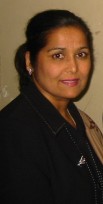My fight for justice for Guantánamo prisoners
By John Higginson
Metro, 20 September 2005
“The most important thing going on right now is the hunger strike in Guantánamo”, says lawyer Clive Stafford-Smith. “There are ten British nationals all of them to my knowledge going into their sixth week of starving themselves to death. These people are going to die in the next few weeks and the military are trying to keep all that a secret.”
Stafford-Smith, 46, is the legal director of Reprieve, a British charity protecting the human rights of people facing the death penalty.
One of the worst alleged miscarriages of justice in Guantánamo Bay is that of Omar Deghayes, a Libyan who spent 15 years in London. The 35-year-old completed a degree here and went to Afghanistan to carry out humanitarian law work. He moved to Pakistan and was seized by US forces in 2002.
According to his supporters, he was picked up by bounty hunters and sold to US troops. He has not been charged with any offence. The only evidence against him is a video which the US claims links him to terrorism – but facial recognition experts say he is not the man in the video.
“Omar was one of America’s 50 top terrorists based on a video they had of a terrorist in Chechnya”, Mr Stafford-Smith said. “When Omar finally found out why he was being held, he told me he had never been to Chechnya. The video is not Omar. The man is a Chechnyan terrorist, who is believed to have died in April 2004. So Omar has been held for three-and-a-half years on a total misidentification.
“He has been pretty savagely treated in Guantánamo and blinded in his right eye. He told me, ‘I may as well take my life into my own hands rather than waiting for them to take it’. He is firm in his belief to take his life.”

 “The London bombings pose stark dilemmas for those on the left and British Muslims in particular. The vast majority of us believe in allowing people to express their differences and practice their culture and religion, without being pushed into one set of homogenous thoughts. Should those freedoms be surrendered by supporting some of the measures being proposed by Tony Blair? Is it really credible to suppose that we should forget the international policy issues bound up in Iraq, Afghanistan, Palestine, and Kashmir?
“The London bombings pose stark dilemmas for those on the left and British Muslims in particular. The vast majority of us believe in allowing people to express their differences and practice their culture and religion, without being pushed into one set of homogenous thoughts. Should those freedoms be surrendered by supporting some of the measures being proposed by Tony Blair? Is it really credible to suppose that we should forget the international policy issues bound up in Iraq, Afghanistan, Palestine, and Kashmir?